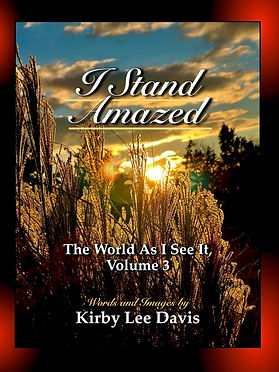What is Christian fiction?
I’ve seen many definitions, some enthusiastic, some dismissive, which should be expected. Christians often worry such works and authors may rewrite or abuse Scripture, while nonbelievers distrust anything that accepts or honors The Lord.
Note how such plots may occur within comedies, tragedies, fantasy, or any other fiction genre. This parallels life. As Romans 1:20 notes, God reaches out to everyone through creation. All people — and all characters, if the author honors The Lord — will at one or more times come face to face with Christ (which could happen before or after that particular story, assuming the character survives). The prose will reveal if the characters follow or reject Jesus.
Some book publishers and sellers may view acceptance as a requirement of Christian fiction. They may also limit the subjects authors may approach, perhaps to please conservative customers. But I tend to side with Charles Williams, one of the Oxford Inklings with C.S. Lewis and J.R.R. Tolkien. In Williams’ novels, Christians didn't always triumph. That’s not to suggest God could be defeated, which is impossible. But His will embraces free choice, allowing souls to reject Him if they wish. Christian storytelling should respect that and follow where it leads, as the Bible does. Such honest realism might encourage unbelievers to sample more of these novels, which are themselves works of ministry.
When handled well, Christian fiction reinforces the Bible. It demonstrates faith at work in real-life situations. It reveals God’s holiness and grace. It illuminates sin and morality. And it accomplishes all this while entertaining readers with gripping, realistic poetry or prose.
As good examples, I point to Stephen R. Lawhead’s Byzantium, a novel of medieval adventures that taught me more about God than any book outside the Bible. His Song of Albion trilogy offers epic fantasy of Tolkien’s grand scope and grace that doesn’t unveil its Christian ties until the last chapter. And then there’s his original Pendragon Cycle, which weaves three legendary sagas into a rich, enthralling tapestry of humanity and Christ.
Yes, I love the works of Stephen R. Lawhead. Most of them, anyway.
How do my novels fit my Christian fiction definition?
God's Furry Angels shares an engaging coming-of-age tale where God plays a background role. Opposite that allegory is The Road to Renewal, an almost-contemporary novel about two believers undergoing three days of escalating trials. This tale of divorce, seduction, and death stretches perceived Christian boundaries yet reinforces Scripture.
Between these extremes rests The Prophet and the Dove, a novel about an aging slave who went from hatred of God to devotion, even as his mentor, a respected prophet, defied The Lord’s direction. This launches The Jonah Cycle, a biblical/historical fiction series exploring God’s work during one of humanity’s most traumatic eras.
Some of my books take Christian fiction one step further by including glossaries, maps, historical background, biblical analysis, and other helpful insights. These attempt to explain the truth behind the fiction, allowing the texts to double as group lessons or devotionals.
Here’s my interpretation: a Christian short story or novel depicts God the Father, Son, and Holy Spirit at work in human lives as foretold or documented by Scripture. This usually results in one or two primary storylines:
-
Unbelievers wrestling with acceptance of Christ.
-
Believers undergoing trials of faith.

And then there are my poems and lyrics. They represent my Psalms in more ways than one, for even in my love songs and tales of human failings, you usually find references to God or Scripture, as shown in The World as I See It series. It couples my verse with my nature photos, which, as Romans 1:20 notes, are dynamic examples of God at work in our lives. Volume 1, Wondrous Grace, may stand as my autobiography, with many of my blogs filling in my poetic holes.
For more insight, check out my page Sifting by Genre!









